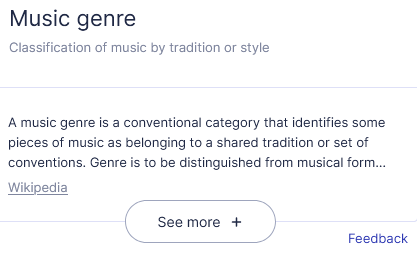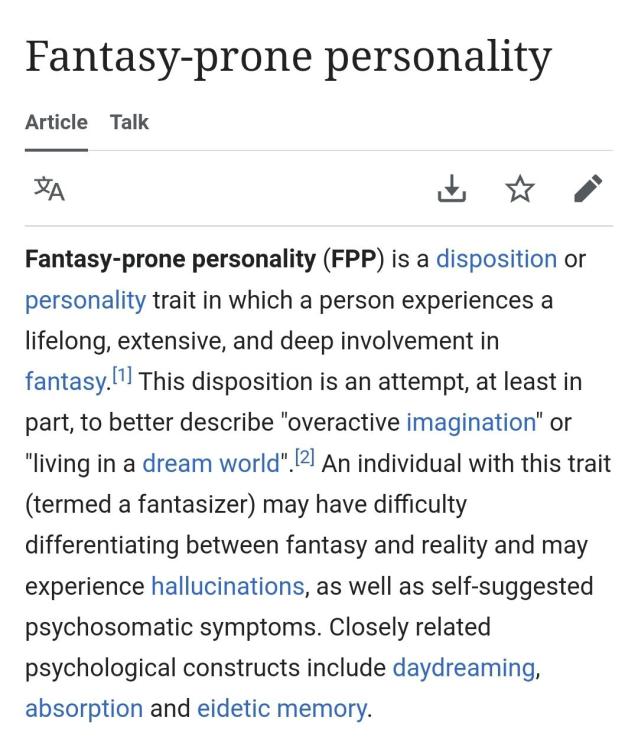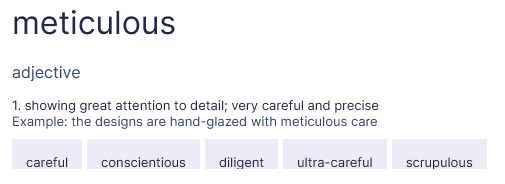All Activity
- Past hour
-
林家興 started following 'Poème': a 30-second hommage to Scriabin
-
I tend to try writing very small works when I find myself beset with writer's block, so it is perhaps a bit telling that this is probably the shortest piece I've written to date, and the least like the style I usually compose in. The piece is mainly based off the melody of Brahms' 'Wiegenlied'; that is, if you look at it through a wacky Scriabinesque kaleidoscope infused with altered dominant chords transposing by major/minor thirds or tritones. More broadly, what do you think of it? Was I somewhat successful at reproducing Scriabin's aesthetic (his languid side, at least)? I'm open to other feedback too 🙂
- Today
-

The "Real™" Reason Today's Music All Sounds The Same
FILMSCORE replied to AngelCityOutlaw's topic in Composers' Headquarters
DISCO-music , does not sound like COUNTRY-music ROCK-music , does not sound like CLASSICAL-music TRADITIONAL FOLK-music , does not sound like HIP-HOP-music ------------------------ Therefore the Statement: "The Reason Today's Music All Sounds The Same" .........is in fact Totally Flawed........With ......Zero-Credibility.........because The GENRE of the music .........is what dictates its Identity. -

Prayer to the Eternal - for piano, violin and 2 voices
Luis Hernández replied to guy500's topic in Chamber Music
Sounds great. The voices, their melodies, harmonies and solemnity remind me of a fantastic opera by Philip Glass (Akhenaton), but not the kind of accompaniment. The role of the piano is very “passive”, although it serves as a support for the voices, I think it could take in specific moments a more active role. I think that the final high note in one of the voices is a bit out of a normal tessitura for what is being developed during the piece. What I'm not so sure about is the violin, especially when it doubles a voice. It would be nice to see the score at the same time. Thanks for sharing. Regards. -

Henry Ng's Moment Musical No. 2, arranged for organ
Luis Hernández replied to PCC's topic in Piano Music, Solo Keyboard
It sounds fantastic! I really like the organ and its ability to color with the cantidd of timbres available, when used well. As it happens here. I think the original composition is well suited to the instrument, or the other way around, by virtue, of course of a good arrangement. Just an observation about the “agitato” passage from measure 34. I think the chords in the middle part sound too “abrupt”. I don't know, maybe it's the intention, but what strikes me most is the transition to the next part in measures 41-42, which does sound sudden. Thanks for sharing. Regards.- 1 reply
-
- 1
-

-

Why I compose music on paper
Henry Ng Tsz Kiu replied to PeterthePapercomPoser's topic in Composers' Headquarters
Thx for reminding me as well as yourself! Let's improve together ✌️ -
FILMSCORE started following Why I compose music on paper
-

Why I compose music on paper
FILMSCORE replied to PeterthePapercomPoser's topic in Composers' Headquarters
Please stay on Topic.... Your deviating from the original thread.. -

Why I compose music on paper
Henry Ng Tsz Kiu replied to PeterthePapercomPoser's topic in Composers' Headquarters
lol ofc I'm not qualified to give medical advice in mental health. I am not even giving advice lol. Who said you have mental health disease? -

Why I compose music on paper
FILMSCORE replied to PeterthePapercomPoser's topic in Composers' Headquarters
Your not qualified to give medical advise in mental health. -

Why I compose music on paper
Henry Ng Tsz Kiu replied to PeterthePapercomPoser's topic in Composers' Headquarters
I'm sure you live in your "interior" fantasy world, or correctly speaking, internal fantasy world, lol. -

Why I compose music on paper
FILMSCORE replied to PeterthePapercomPoser's topic in Composers' Headquarters
Those 2 concepts you stated , are meticulously developed and used by Mainstream-commercial producers & composers. Amateurs & Professionals sometimes think in 2 opposing ways.............INTERIOR vs EXTERIOR.........MINIMIZER vs MAXIMIZER Their Interior-Fantasy-World , doesnt always relate to the ............Exterior-Reality-World............which usually results in Rejection of scripts. -
chopin started following Why I compose music on paper
-
Why I compose music on paper
chopin replied to PeterthePapercomPoser's topic in Composers' Headquarters
I personally can't imagine writing by hand (after all, this is why I am investing time into a new music notation software 😄), however I understand your reasoning. Writing by hand is much more deliberate, and requires a more concerted effort not to just throw things at the wall as you say. I think at the end of the day, it comes down to discipline. If composing on the computer takes away that discipline for you, stick to paper and pencil. Maybe you can train yourself someday to compose directly on the computer, but only if you can maintain that certain level of discipline. As for me, I force myself not to move onto the next section until I am happy with the current section I am working on. And this approach seems to work well for me, whether by hand, or by 1s and 0s! -
Short piece I wrote for quartet
-
- 1
-

-
.thumb.png.8b5b433a341551e913a34392660bc95b.png)
Why I compose music on paper
PeterthePapercomPoser replied to PeterthePapercomPoser's topic in Composers' Headquarters
I had another thought that I want to share. I have a mental health diagnosis, and my ability to write music quickly and into the sequencer/DAW went away at around the same time that I was diagnosed. Back when I used to write that way, I remember that my process of writing music was very sporadic and consisted of basically trying to throw $hit at a wall to see what would stick. There was no deliberation and contemplation between my musical decisions and I produced a lot of material that I never developed into finished pieces of music. I remember that, at that time, I was very bipolar about my creation process and I believed the romantic myth about creators getting a "stroke of inspiration" or being "inspired by their muse" or something. So most of the time I ended up feeling uninspired and didn't like the ideas that I'd come up with and hence never continued them to see where they would lead. When I did get good ideas I would spend long periods of time at the computer to get as much out of a good streak of luck at composing as I could and often stayed up all night. In that sense it was like gambling at a casino or something. While being hospitalized at the mental hospital, I had to learn to write music on paper and inadvertently discovered a different, more measured way to compose music. The benefits of composing on paper were not all apparent to me all at once. But besides forcing me to imagine a composition without hearing it and the many advantages of doing so that I've already espoused above, the other big advantage of writing on paper was that it forced me to slow down the process to where my brain could cope with the creative process and the craft and actually contemplate my own ideas at a manageable pace. I think, in comparison to how I used to compose, I was composing in a much calmer, and controlled way. I never realized how emotionally exhausting and anxiety inducing my previous way of composing was until I got my mental illness, and it's possible that I got my mental illness in part because I was "the creative type" and that I forced myself through drastic emotional upheavals in order to create. The truth is, I can no longer cope with trying to write music the old way. But I do believe that writing music on paper is the right way for me to compose for who I've become and who I am today. And that must naturally include all my strengths and weaknesses as a human being and composer. Once again, thanks for reading. -
a tale once told joined the community
- Yesterday
-
Henry Ng Tsz Kiu started following Henry Ng's Moment Musical No. 2, arranged for organ
-
Moment Musical in A-flat major
PCC replied to Henry Ng Tsz Kiu's topic in Piano Music, Solo Keyboard
Here you go. I have some Easter eggs in the arrangement of the piece. See if you guys can find them. -
PCC started following Henry Ng's Moment Musical No. 2, arranged for organ
-
Henry Ng's Moment Musical No. 2, arranged for organ
PCC posted a topic in Piano Music, Solo Keyboard
EDIT: SORRY I MADE A TRANSCRIPTION ERROR LET ME FIX IT EDIT2: pdf file is fixed but the audio I need to fix it later as well The original work by Henry Since Henry insisted I post this as my own work, here it is. Bear in mind I have only played the organ for less than once per week for a few months, please comment any improvements that could be made. I tried to give different stop voices in the system but the sounds don't go very balanced and apparently the vibratos are pre-recorded and can't be removed, but it kind of gives the right impression I suppose. If I ever get competent enough I might try recording it for real MM2HN.mp3- 1 reply
-
- 3
-

-
Here's an updated score ... changes in percussion, better transitions, dynamics etc ... Look forward to comments. Mark Please excuse double measure lines in score ... have to figure out how get rid of them.
-
.thumb.png.8b5b433a341551e913a34392660bc95b.png)
are these appropriate for children?
PeterthePapercomPoser replied to Mooravioli's topic in Piano Music, Solo Keyboard
Hi @Mooravioli! I especially like the crazed capybara piece! It is so quirky and reminds me of Debussy's Children's Corner - Golliwog's Cakewalk! I think with the complex harmonies and key signatures and meter changes, this is far from a beginner piece. Perhaps it might not seem that hard to play in terms of the technique etc. But to learn the right notes and rhythms conceptually for a child would be quite a challenge I think! At measure 57 you have the tempo marked as quarter = 120? Are you sure that's correct? That part seems to be quite slow. I have to say that my favorite parts are ones marked quarter = 165. The figurations there make me think of a flurry of capybara activity! LoL Thanks for sharing these pieces! I think the last one especially is quite unique and individual to you! -
PeterthePapercomPoser started following Oobleck - Live Performance and are these appropriate for children?
-
.thumb.png.8b5b433a341551e913a34392660bc95b.png)
Oobleck - Live Performance
PeterthePapercomPoser replied to Eickso's topic in Orchestral and Large Ensemble
Despite your illness I am still glad to see you here @Eickso! I am so sorry to hear about your debilitating fatigue! I read a little about the illness. Which symptoms do you experience? Do you have trouble with sleep/brain fog? Are you able to listen and enjoy music? How severe is it? I'm sorry if this is too personal and if you don't want to answer or can't I'll understand. I am glad however, that you were able to share this great live performance of your Oobleck piece! I think thanks to your clever program description, the piece is accessible to a general audience and easy to "get" despite the microtones. Ever since hearing it and another microtonal piece by @Mooravioli I have myself been inspired to explore microtonality! So thanks for that! -
Mooravioli started following are these appropriate for children?
-
ello everybody, I've spent many months working on three short new piano pieces for beginning to intermediate students. These are originally intended for children to play, but could also be for beginning adults. In these pieces, I've also tried to discover my own voice and style, do let me know how I've done in those areas. Other feedback related to technique, harmony and playability would be much appreciated. Poem 1: "based on a theme by Beethoven", updated score Poem 2: "the quirky detective", updated score Poem 3: "the crazed capybara", score
-

Oobleck - Live Performance
Henry Ng Tsz Kiu replied to Eickso's topic in Orchestral and Large Ensemble
I read a book and watched a film before named Le Scaphandre et le Papillon. The writer who is also the protagonist of the book suffered from locked-in syndrome when he could only blink his eyes and couldn’t use any other muscles, despite having a clear mind. I cried as Fisk when watching that film and reading the book. Now I’m crying now. I can do nothing except wishing you a speedy recovery 😭 Kyrie Eleison! -
Oh you don’t have to worry, I’d been thinking about posting this here for a few weeks now. You helped! And there’s no way to predict these things - everyone is surprised. I know I am, daily :). Yes, these things don’t deserve to happen, and yet they do. What a cruel thing for God to take away even the enjoyment of listening to music. I mostly sit in the dark with no sound doing breathing exercises. I get very shaky when I do anything for more than 5 minutes, and if I push that too much I will have a stroke like shutdown for a few hours. Always conscious, but trapped in my own body. Hell. Fear the disease that is ME/CFS.
-

Oobleck - Live Performance
Henry Ng Tsz Kiu replied to Eickso's topic in Orchestral and Large Ensemble
Evan, I’m very sorry to hear that, and more sorry for pinging you idiotically without knowing anything you have been suffering!! Why talented people like you need to be harmed in this way??????????? You are so good at many things, composing, clarinet playing, and organising those wonderful competitions. I hope you are getting well now. Forgive me for pinging you brainlessly, and my sincerest wish you a speedy recovery🙏🙏 Henry -
I got a ping today that I am not active on here much anymore. Last August, I became bedbound with ME/CFS and have seen a steady drop in my abulities to do anything. From 50% functioning, to 40 to 30 to 20 to 10 to 5. Some days I can barely lift my head to eat. There is talk of putting me in a nursing home when my mom goes back to work this fall. I’m only 22! Oobleck, which I’ve posted here before, was written primarily in the first month of my illness. Before things became really bad. When I was still hopeful I would be better by “X” date. “It’s just the flu,” and “I’ll be ready to go back to school by fall break,” turned into a slow melting away of my entire life. Moving back home with my mom, leaving my friends, my college city, my life I had built, and having to start completely from scratch with a body that leaves me in 9/10 pain and dysfunction daily. It is a very potent work. Perhaps my first real “piece of art.” I am proud of creating something that is truly me. It is not about enjoyment, it is about the experience. I can dub the work as “Mahler, but with quarter tones.” I won’t be writing or doing much of anything for the next while. My life is too covered in oobleck. Program Note: The term oobleck is a type of substance that, when supported with pressure and force, is a solid. However, as soon as this support is removed, it oozes into a sticky liquid. Because of this, the oobleck always feels like it is on the verge of oozing apart into a mess of gunk. Dr. Seuss coined the term, introducing it in his story, "Bartholomew and the Oobleck." Its manifestation in the story is an evil, sticky substance which covers the kingdom it rains down upon. "Oobleck" is an aural exploration of a familiar musical world tainted by oobleck.
-
There is a note of intent (translated into English) in the YouTube description. This can help to contextualize the poem and its musical treatment.










